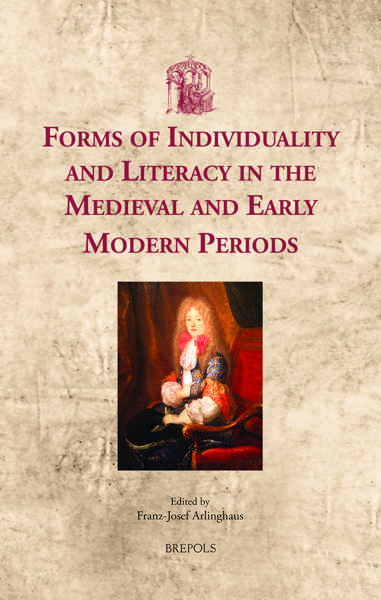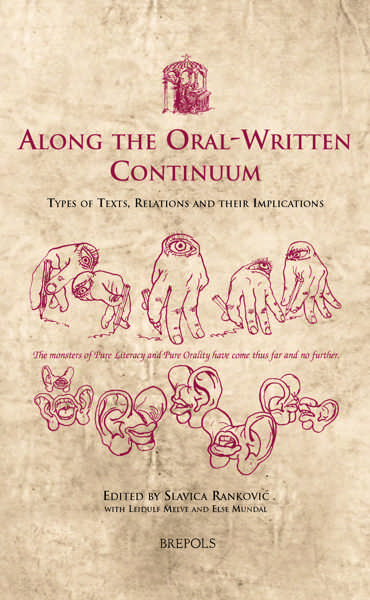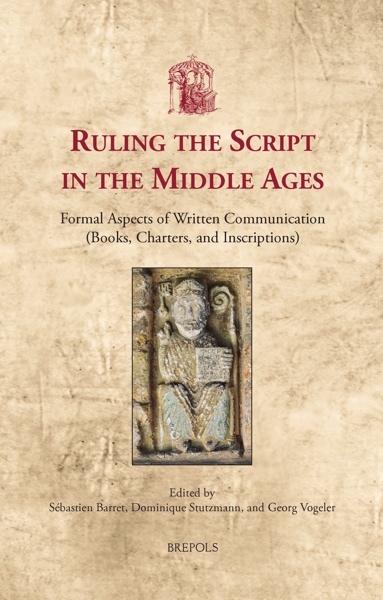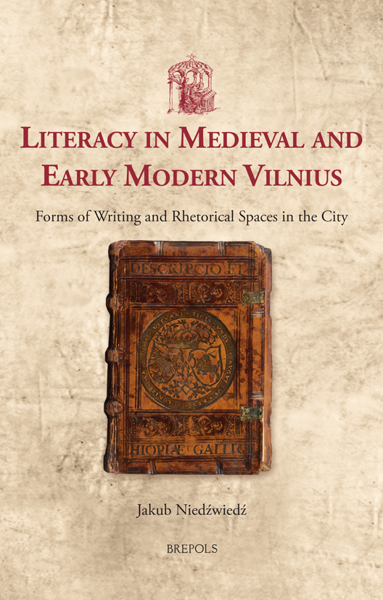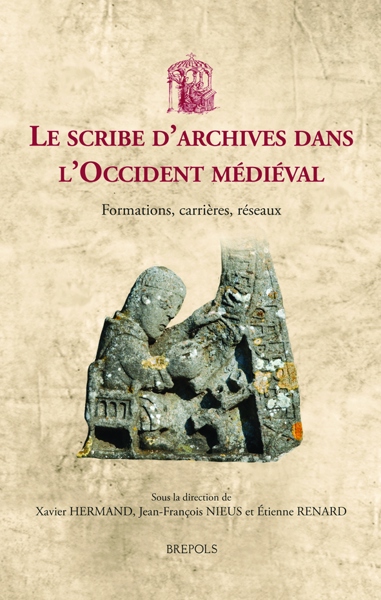
Forms of Individuality and Literacy in the Medieval and Early Modern Periods
Franz-Josef Arlinghaus (ed)
- Pages: 317 p.
- Size:156 x 234 mm
- Illustrations:2 b/w, 13 col.
- Language(s):English
- Publication Year:2015
- € 110,00 EXCL. VAT RETAIL PRICE
- ISBN: 978-2-503-55220-0
- Hardback
- Available
- € 110,00 EXCL. VAT RETAIL PRICE
- ISBN: 978-2-503-55289-7
- E-book
- Available
Through case studies of a broad variety of medieval and early modern sources, this volume discusses whether the roots of modern notions of individuality can be found in pre-modern Europe.
« <Cet ouvrage> permet de faire considérablement progresser la réflexion et ouvre la voie vers de nouvelles perspectives » (Harmony Dewez, dans Annales, Histoire, Sciences Sociales, 70/2, 2016, p. 491)
“Insgesamt werden ältere Thesen zum Individuum in der Vormoderne ebenso diskutiert wie neue Fragen aufgeworfen und beantwortet werden. Die Beiträge zeigen, an welchen Stellen die in der Systemtheorie verbreitete starre Aufsicht auf vormoderne Gesellschaften mit ihren eigenen Mitteln überwunden werden kann und welchen Nutzen dies für die historisch arbeitenden Disziplinen hat.” (Katharina Ulrike Mersch, in Historische Zeitschrift, 304, 2017, Seite 433)
“Based on a collection of papers originally presented at a conference held in Bielefeld in 2009, this volume is a welcome and unusual addition to the Utrecht Studies in Medieval Literacy series.” (David Appleby, in The Medieval Review, 04/07/2017)
‘Individuality’ is one of the central categories of modern society. Can the roots of modern individuality be found in pre-modern times? Or is our way of thinking about ourselves a very recent phenomenon? This book takes a theoretical approach to the problem, derived from Niklas Luhmann’s system theory, in which different forms of individuality are linked to different structures of society in modern and pre-modern times.
The papers in this volume approach this problem by discussing a broad variety of medieval and early modern sources, including charters and seals, letters, and naming-practices in a late medieval town. Self-representation is also considered, in ‘housebooks’ and drawings. Textual studies include autobiography in German Humanism, and concepts of individuality and gender in late medieval literary texts.
Preface—FRANZ-JOSEF ARLINGHAUS
Conceptualising Pre-Modern and Modern Individuality: Some Theoretical Considerations—FRANZ-JOSEF ARLINGHAUS
Bodily Practices as an Expression of ‘Individuality’ in the Letters of Liselotte von der Pfalz (1652-1722—MAREIKE BÖTH
Loci of Medieval Individuality: A Methodological Inquiry—BRIGITTE M. BEDOS-REZAK
Hetero-Reference and Heterology: Autobiographical Writing, Individuality, and Gender on the Threshold of the Modern Period—EVA KORMANN
Expressing Your Self in Later Medieval England: Individuality and Social Differentiation—DAVID GARY SHAW
‘Individuality’, Relationships, Words about Onesself: Autobiographical Writing as a Resource (Fifteenth-Sixteenth Centuries) –Konrad Pellikan’s Autobiography—GABRIELE JANCKE
Individuality and Narration: The Cases of Ulrich von Liechtenstein, Helene Kottanerin, and Johannes Tichtel—MATTHIAS MEYER
Kinship as Catalyst of Individuation in Sixteenth-Century German House Books: A Reconsideration of Niklas Luhmann’s Approach to Pre-Modern Individuality—GREGOR ROHMANN
Me, Myself, and My Name: Naming and Identity in the Late Middle Ages—CHRISTOF ROLKER
Body and Time: The Representation of the Naked and Clothed Self in Religious, Social, and Cosmological Orders (Matthäus Schwarz, -)—HEIKE SCHLIE
Dialogue Situations: Considerations on Self-Identification in the Middle Ages—SABINE SCHMOLINSKY
